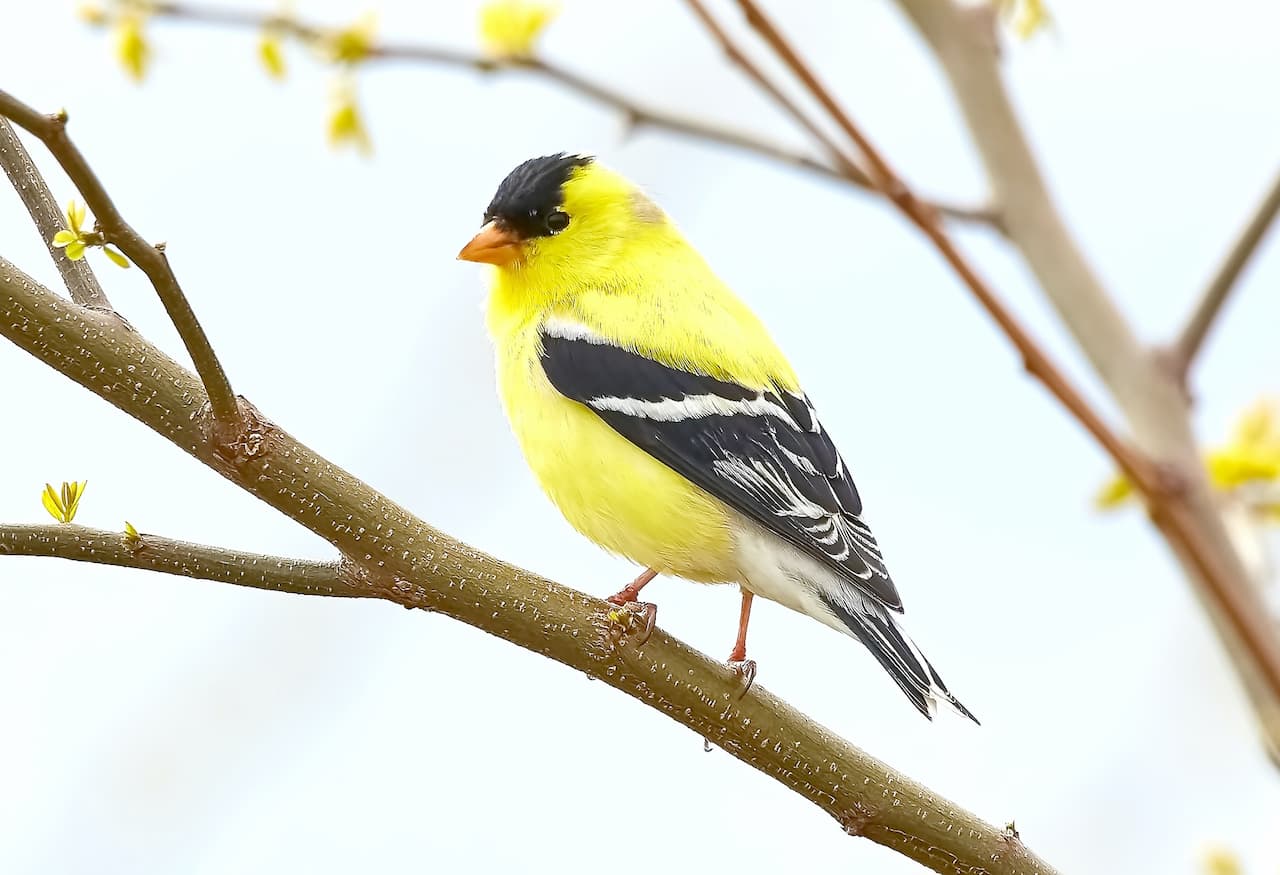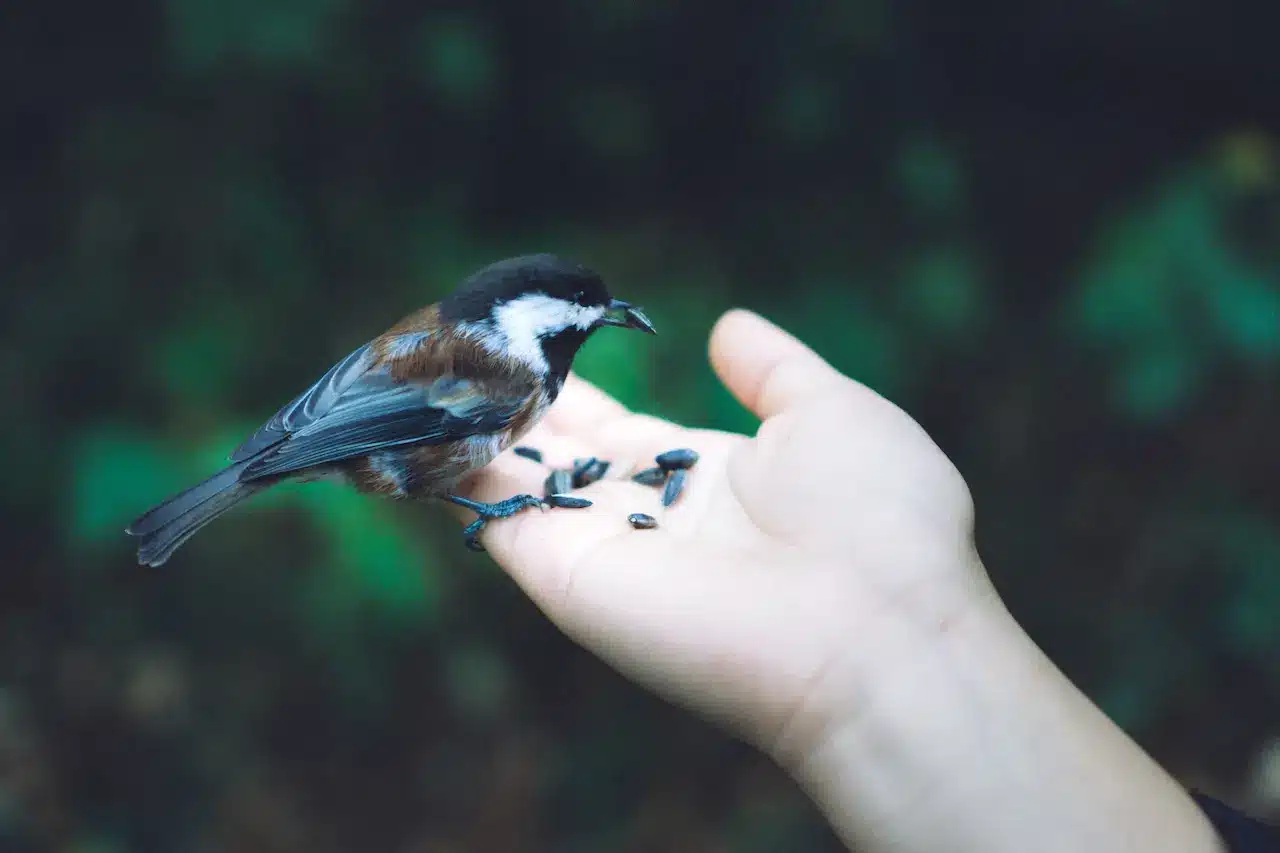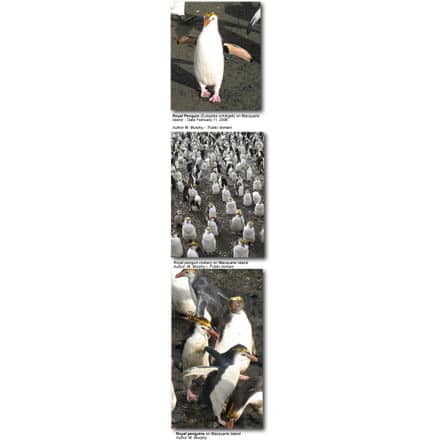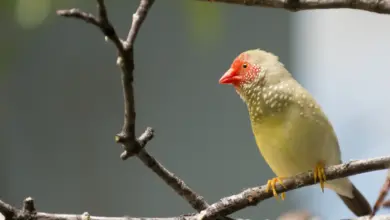Hummingbirds found in Delaware, USA
Hummingbirds found in the USA (by U.S. State) … Canada … Mexico … Puerto Rico … Jamaica … Honduras
Hummingbird Information
The following hummingbirds occur in Delaware …
Ruby-throated Hummingbirds, Archilochus colubris – Native – Migratory – usually arrive in Delaware in March to early May for breeding. Generally leave by September. Males usually depart first, and females and the young follow about two weeks later.
The male has a ruby-red throat, a white collar, an emerald green back and a forked tail.
The female has a green back and tail feathers that are banded white, black and grey-green.
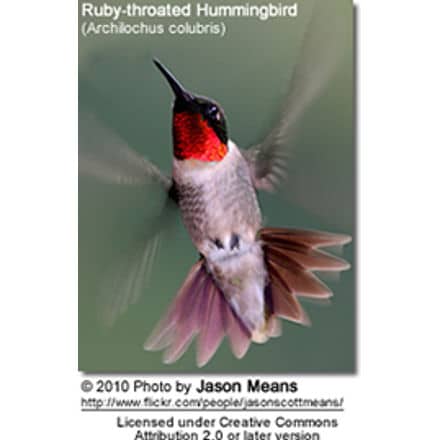
Rufous Hummingbirds, Selasphorus rufus – Native – Migratory – usually arrive in Delaware in March to April for breeding
These hummingbirds are usually found in gardens and at feeders. These birds are fearless, and are known for chasing away other hummingbirds and even larger birds, or rodents away from their favorite nectar feeders and flowers.
Males can easily be identified by their glossy orange-red throats.
Females have whitish, speckled throats, green backs and crowns, and rufous, white-tipped tail feathers.
Rufous Hummingbird versus the similar Ruby-throated Hummingbird (Identification)
Allen’s Hummingbird, Selasphorus sasin – Rare visitor. Historically, these birds nested in coastal California and wintered in Mexico; but more and more of them are remaining in California year-round or are traveling to the eastern United States for the winter. The Allen’s Hummingbird is often confused with the Rufous Hummingbird, but the Allen’s can be identified by the green back whereas the Rufous Hummingbird has a coppery back.
The male has a throat that ranges in color from orange-red to yellow-orange, a back that is bright green, a rump that is rufous and its tail feathers are rufous tipped in black.

Broad-tailed Hummingbird, Selasphorus platycercus – Rare visitors
Males can most easily be identified by their iridescent, rose-red throats, white chest feathers and metallic green back and crown and their rounded tails. The males’ tails make whistling noises in flight.
Females lack the flashy throat patch of the male and are mostly pale below. Their white-tipped outer tail feathers are rust-colored close to the body and blackish in the center; the tail feathers in the center range from green to blackish.
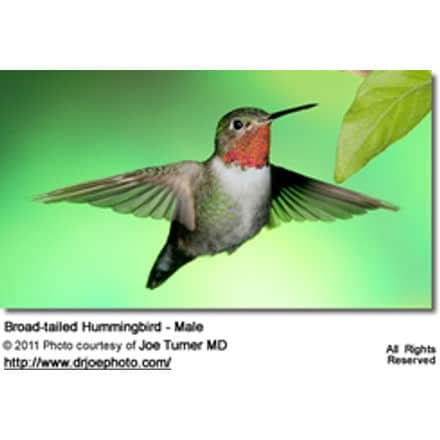
Hummingbird Resources
- Hummingbird Information
- Hummingbird Amazing Facts
- Attracting Hummingbirds to Your Garden
- Hummingbird Species
- Feeding Hummingbirds

